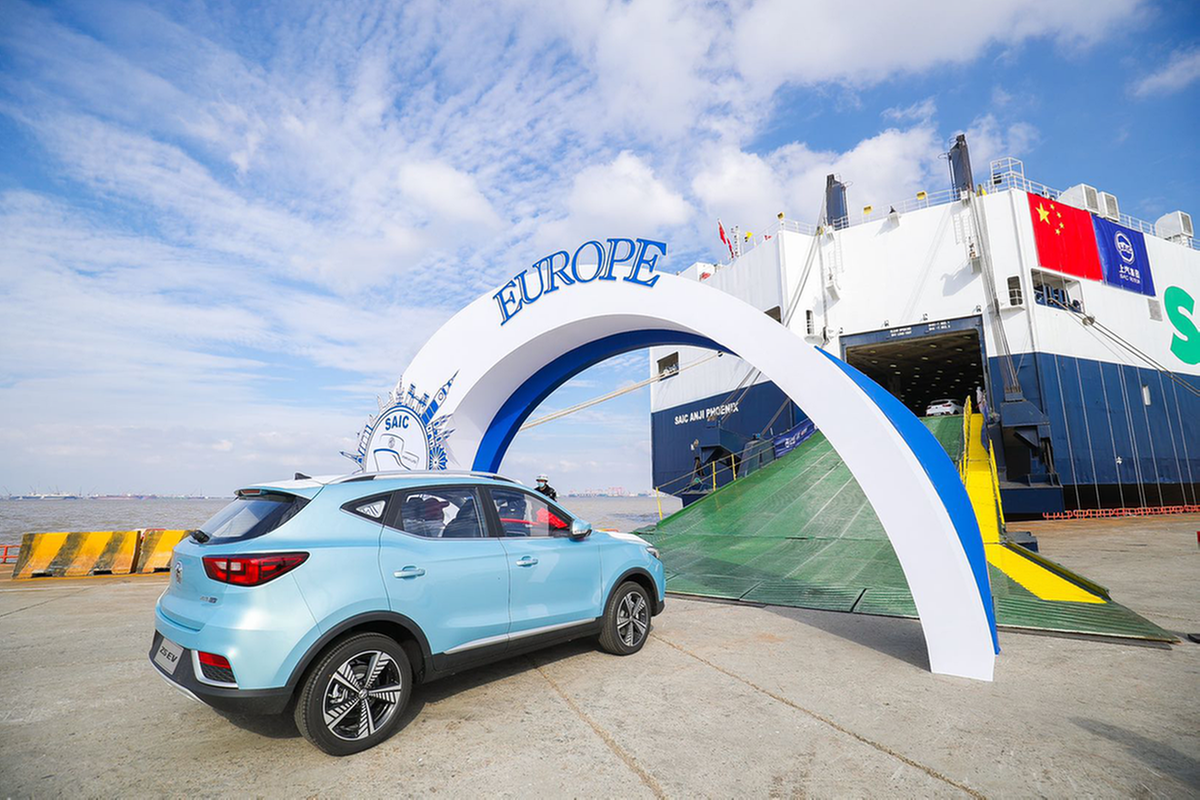
A SAIC model is driven into a cargo ship headed to Europe. [Photo provided to chinadaily.com.cn]
Protectionist moves by the European Union, particularly those targeting Chinese electric vehicles, will affect mutual trust and cooperation between China and the EU, market watchers and industry leaders said.
Chinese firms may perceive such measures as discriminatory and this could undermine their confidence in the EU market. The erosion of trust can lead to a more challenging business environment, potentially deterring Chinese investments and reducing bilateral trade, they said.
The European Commission last week announced plans to impose import tariffs of up to 36.3 percent on EVs produced in China, while it proposed to charge Tesla an additional tariff of only 9 percent on its vehicles imported from China.
These measures, if implemented, would remain in effect for five years, though a final decision has yet to be made.
"The EU's protectionist actions will damage China-EU economic and trade cooperation, disrupting ongoing consultations and negotiations between the two sides and setting a concerning precedent for addressing similar issues in the future," said Cui Fan, a professor specializing in international trade at the Beijing-based University of International Business and Economics.
Hu Zinan, a researcher at the German Studies Center of Tongji University in Shanghai, said the negative effect could also ripple through the industry chain, affecting the economies of multiple EU countries and further weakening their overall economic performance.
"For example, Germany is already experiencing a technical recession. The pressure of economic stagnation makes Germany more cautious about any policies and measures that could trigger trade disputes," Hu said. "They certainly could hinder its economic recovery."
In addition to launching an anti-subsidy probe into certain dairy products imported from the EU last week, China's Ministry of Commerce held a meeting on Friday to gather opinions and suggestions from industry professionals and experts on raising import tariffs on large-displacement fuel vehicles.
The meeting, presided over by the ministry's head of the Department of Finance, was attended by representatives from industry organizations, research institutions and automotive companies.
Shi Yonghong, vice-president of the China Chamber of Commerce for Import and Export of Machinery and Electronic Products, said that under the new Foreign Subsidies Regulation, the EU is able to conduct in-depth investigations into local investments in industries that it suspects of receiving foreign subsidies.
These investigations can be followed by a range of measures, including forbidding investments or divesting assets. Such measures are more stringent and involve a wider scope compared to merely imposing tariffs, causing considerable concern to companies, said Shi.
Therefore, Chinese EV manufacturers are likely to adopt a wait-and-see attitude toward investments in Europe, as they are unable to determine the severe impact of the new EU rules at the moment, and such uncertainty means significant risk, he added.
Even though establishing production bases in non-EU countries like Thailand and Turkiye may help bypass high tariffs and reduce dependence on the EU market, Chinese auto manufacturers should not rush into localizing production solely in response to tariff increases, said Bai Ming, a member of the Academic Degree Committee at the Chinese Academy of International Trade and Economic Cooperation in Beijing.
It is crucial to conduct a thorough assessment of the local market, ensuring there is adequate demand, a favorable business environment and opportunities to extend China's related industry chains internationally, said Bai.





